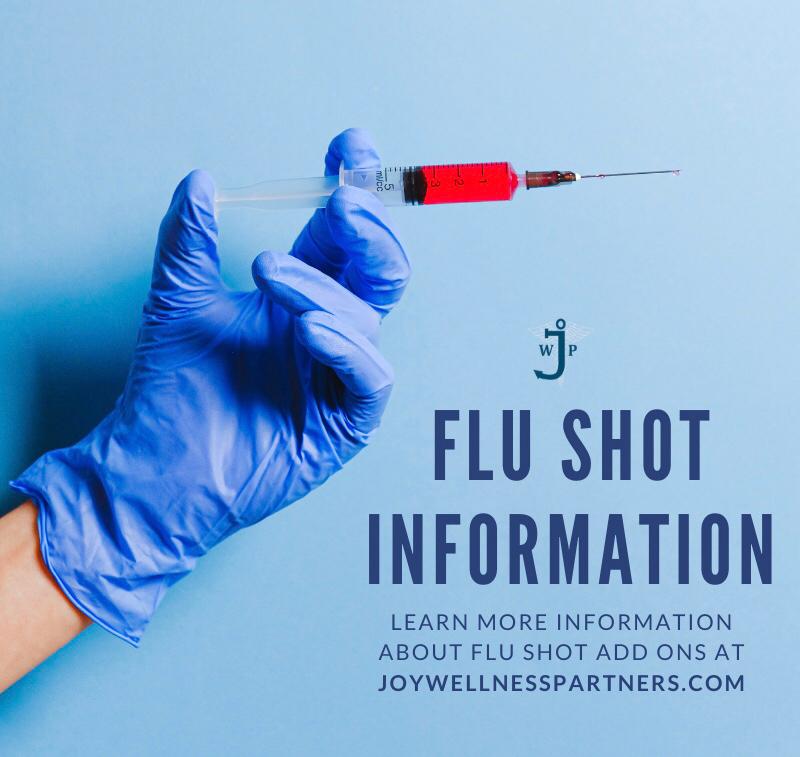The seasonal flu vaccine can cut your risk in half for getting the flu. Getting vaccinated every year is the best way to lower your chances of getting the flu. Flu vaccines can’t cause the flu. Getting the flu vaccine also protects the people around you. So, when you and your family get vaccinated, you help keep yourselves and your community healthy.
It’s important to get the flu vaccine every year. This is for two reasons: first, immunity (protection) decreases over time. Second, the flu viruses are constantly changing — so the vaccine is updated often to give the best protection.
Who Should Get Vaccinated | High Risk Populations
• Adults 65 years and older
• Children younger than 2 years old
• Pregnant women and women up to 2 weeks after the end of pregnancy
• American Indians and Alaska Natives
• People who live in nursing homes and other long-term care facilities
• Although all children younger than 5 years old are considered at high risk for serious flu complications, the highest risk is for those younger than 2 years old, with the highest hospitalization and death rates among infants younger than 6 months old.
More Information for Specific High-Risk Populations…
• Asthma
• Heart Disease & Stroke
• Diabetes
• HIV/AIDS
• Cancer
• Children with Neurologic Conditions
Heath & Age Factors Known to Increase Risk of Complications from the Flu
• Neurologic and neurodevelopment conditions
• Blood disorders (such as sickle cell disease)
• Chronic lung disease (such as chronic obstructive pulmonary disease [COPD] and cystic fibrosis)
• Endocrine disorders (such as diabetes mellitus)
• Heart disease (such as congenital heart disease, congestive heart failure and coronary artery disease)
• Kidney disorders
• Liver disorders
• Metabolic disorders (such as inherited metabolic disorders and mitochondrial disorders)
• People who are obese with a body mass index [BMI] of 40 or higher
• People younger than 19 years of age on long-term aspirin- or salicylate-containing medications.
• People with a weakened immune system due to disease (such as people with HIV or AIDS, or some cancers such as leukemia) or medications (such as those receiving chemotherapy or radiation treatment for cancer, or persons with chronic conditions requiring chronic corticosteroids or other drugs that suppress the immune system)
CDC Guide for Parents
https://www.cdc.gov/flu/pdf/freeresources/family/flu-guide-for-parents-2018.pdf
Is flu vaccine safe?
Flu vaccines are made using strict safety and production measures. Millions of people have safely received flu vaccines for decades. Flu shots and nasal spray flu vaccines are both options for vaccination. Different types of flu vaccines are licensed for different ages. Each person should get one that is appropriate for their age. CDC and the American Academy of Pediatrics recommend an annual flu vaccine for all children six months and older.
How can I protect my child from flu?
The first and best way to protect against flu is to get a yearly flu vaccine for yourself and your child. Flu vaccination is recommended for everyone 6 months and older every year. Flu shots and nasal spray flu vaccines are both options for vaccination. It’s especially important that young children and children with certain long-term health problems get vaccinated.
Right now, at JWP! Detox and revive with an IR Sauna Session for only $20! (Save $15)
References:
https://www.cdc.gov/flu/prevent/flushot.htm
https://www.cdc.gov/vaccines/hcp/acip-recs/index.html
https://www.cdc.gov/flu/pdf/freeresources/family/flu-guide-for-parents-2018.pdf








